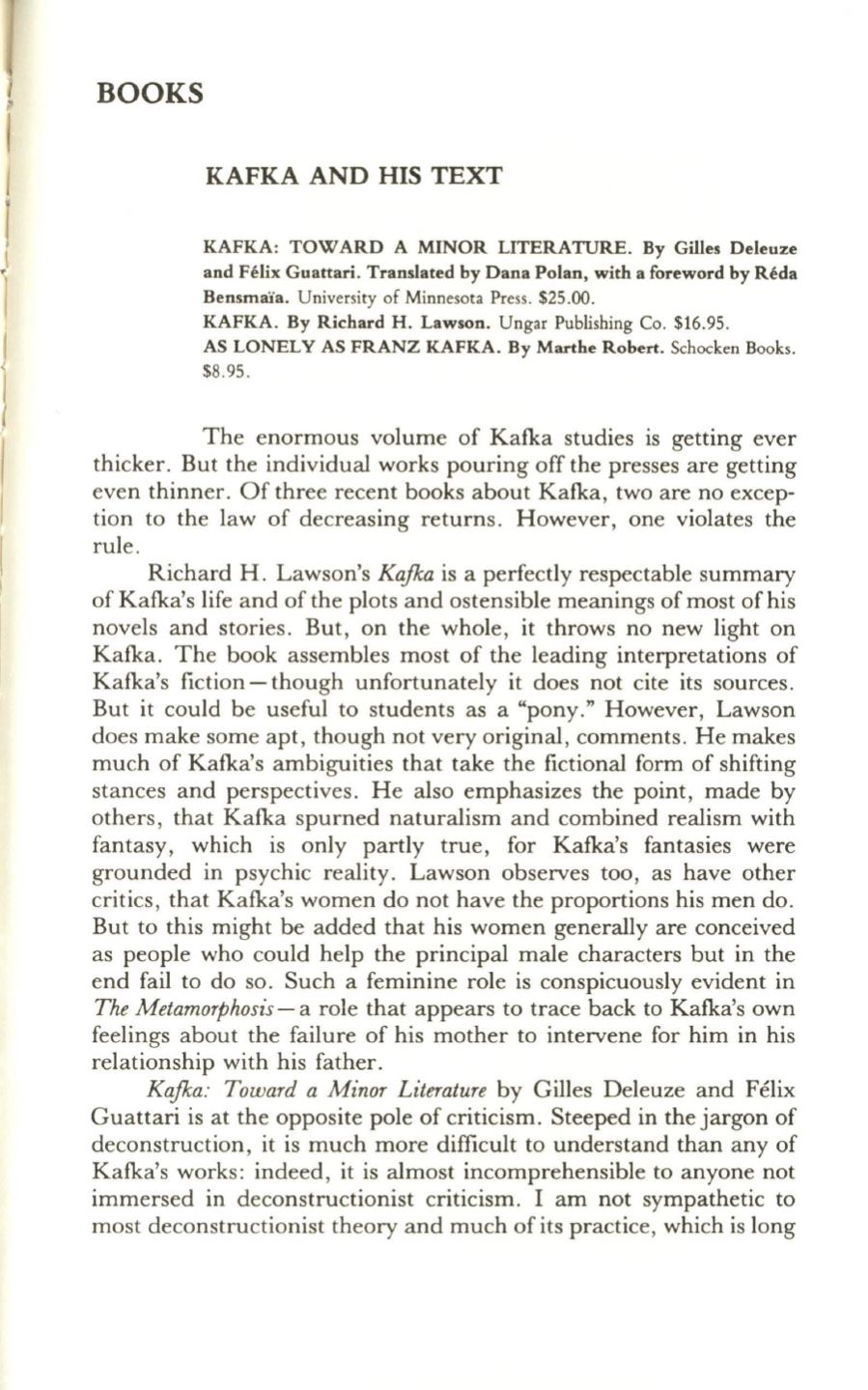
I
.t
<
I
l
BOOKS
KAFKA AND HIS TEXT
KAFKA: TOWARD A MINOR LITERATURE. By Gilles Deleuze
and Felix Guattari. Translated by Dana Polan, with a foreword by Reda
Bensmata. University of Minnesota Press. $25.00.
KAFKA. By Richard H. Lawson. Ungar Publishing Co. $16.95.
AS LONELY AS FRANZ KAFKA. By Marthe Robert. Schocken Books.
$8.95 .
The enormous volume of Kafka studies is getting ever
thicker. But the individual works pouring off the presses are getting
even thinner. Of three recent books about Kafka, two are no excep–
tion to the law of decreasing returns. However, one violates the
rule.
Richard H . Lawson's
Kafka
is a perfectly respectable summary
of Kafka's life and of the plots and ostensible meanings of most of his
novels and stories. But, on the whole, it throws no new light on
Kafka. The book assembles most of the leading interpretations of
Kafka's fiction - though unfortunately it does not cite its sources.
But it could be useful to students as a "pony." However, Lawson
does make some apt, though not very original, comments. He makes
much of Kafka's ambiguities that take the fictional form of shifting
stances and perspectives. He also emphasizes the point, made by
others, that Kafka spurned naturalism and combined realism with
fantasy, which is only partly true, for Kafka's fantasies were
grounded in psychic reality. Lawson observes too, as have other
critics, that Kafka's women do not have the proportions his men do.
But to this might be added that his women generally are conceived
as people who could help the principal male characters but in the
end fail to do so. Such a feminine role is conspicuously evident in
The Metamorphosis
-
a role that appears to trace back to Kafka's own
feelings about the failure of his mother to intervene for him in his
relationship with his father.
Kafka: Toward a Minor Literature
by Gilles Deleuze and Felix
Guattari is at the opposite pole of criticism. Steeped in the jargon of
deconstruction, it is much more difficult to understand than any of
Kafka's works: indeed, it is almost incomprehensible to anyone not
immersed in deconstructionist criticism. I am not sympathetic to
most deconstructionist theory and much of its practice, which is long


